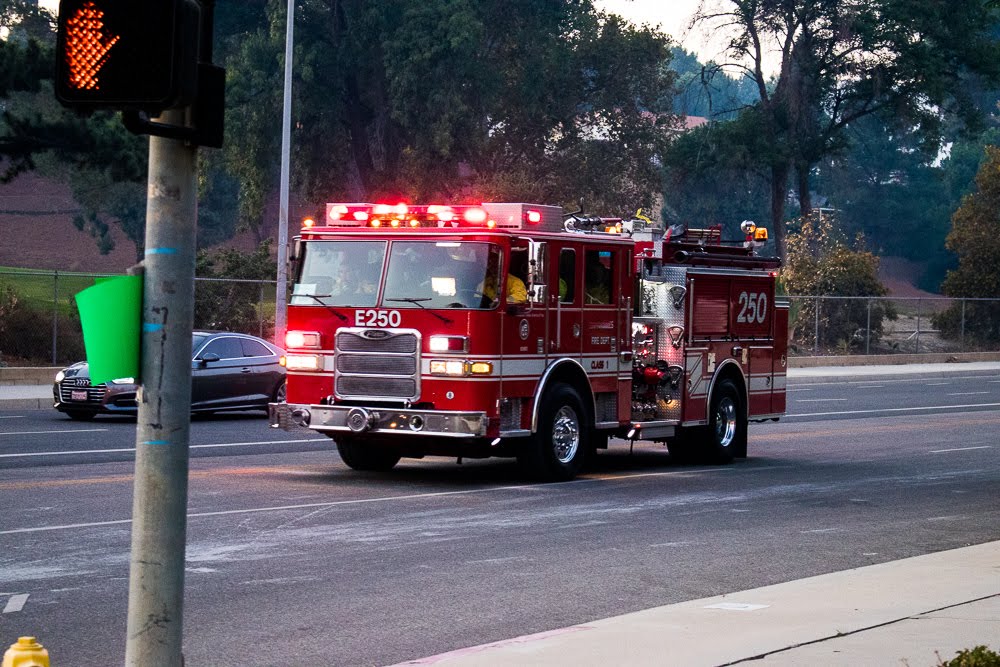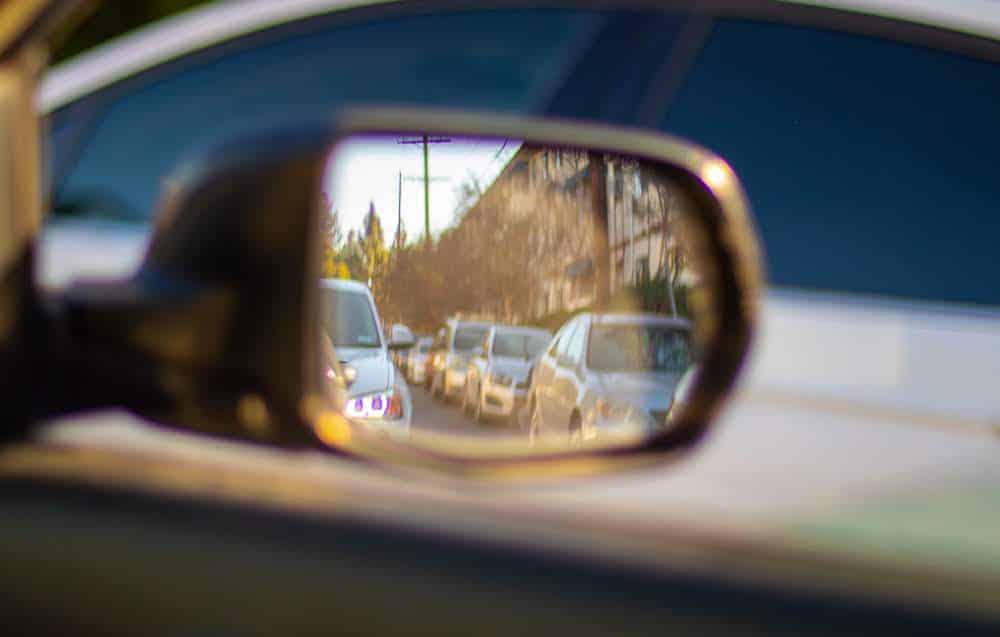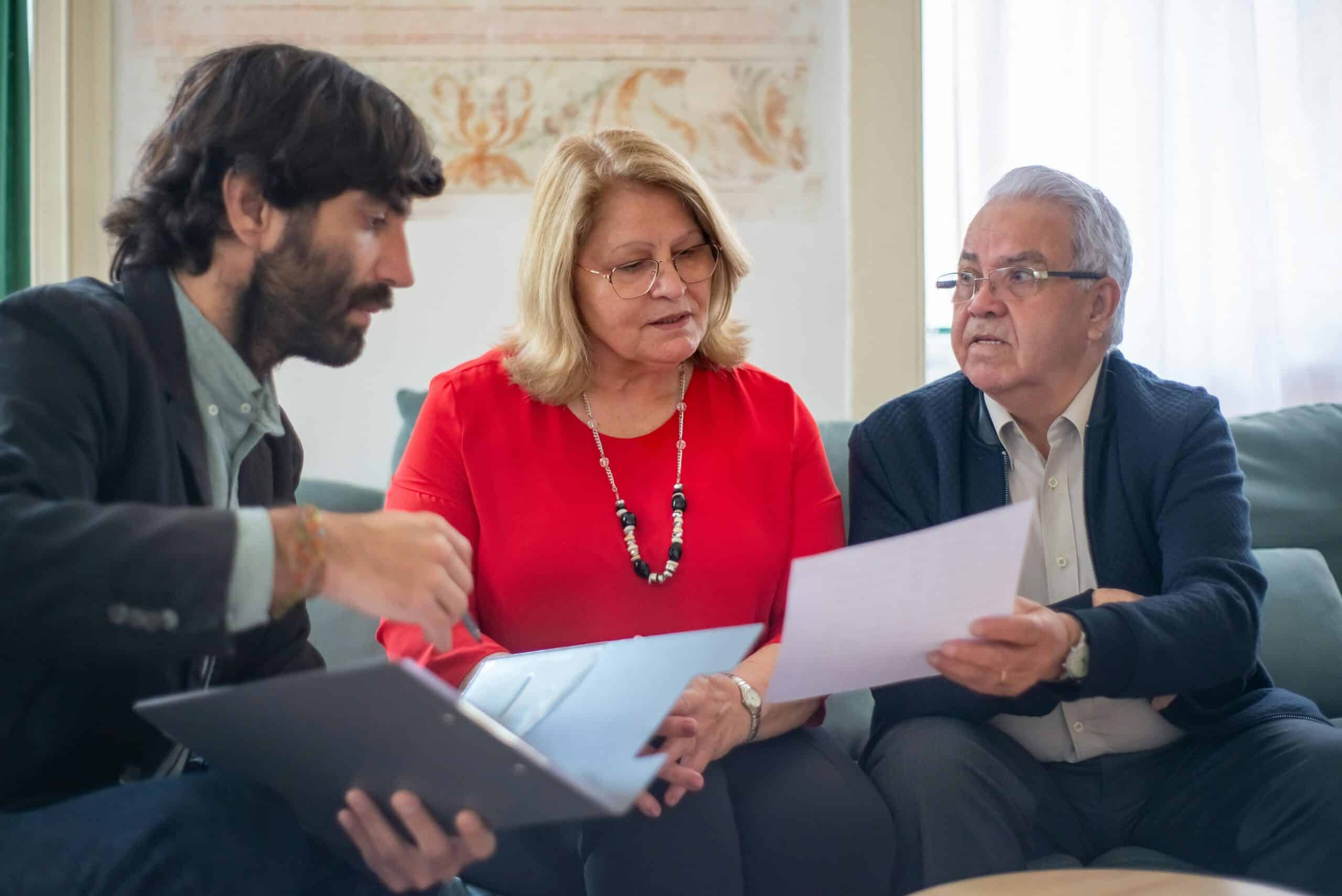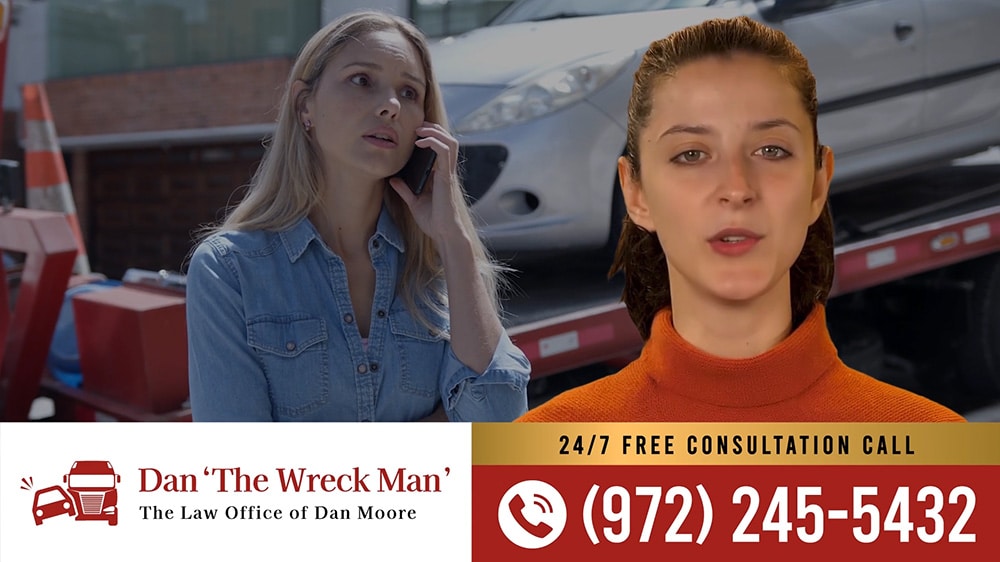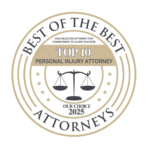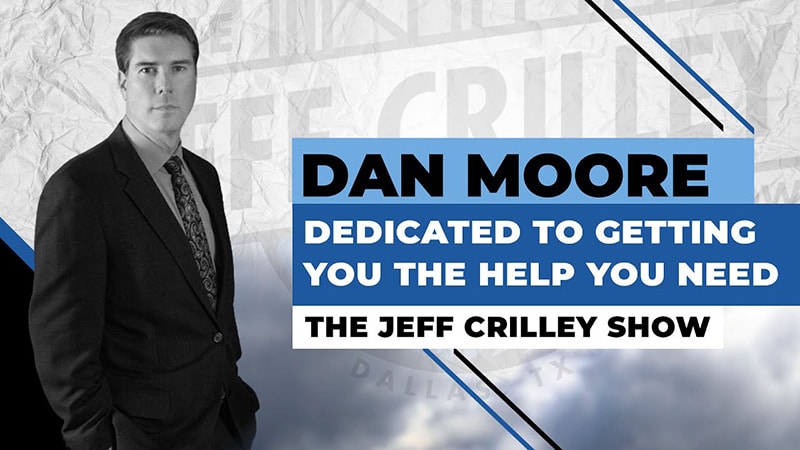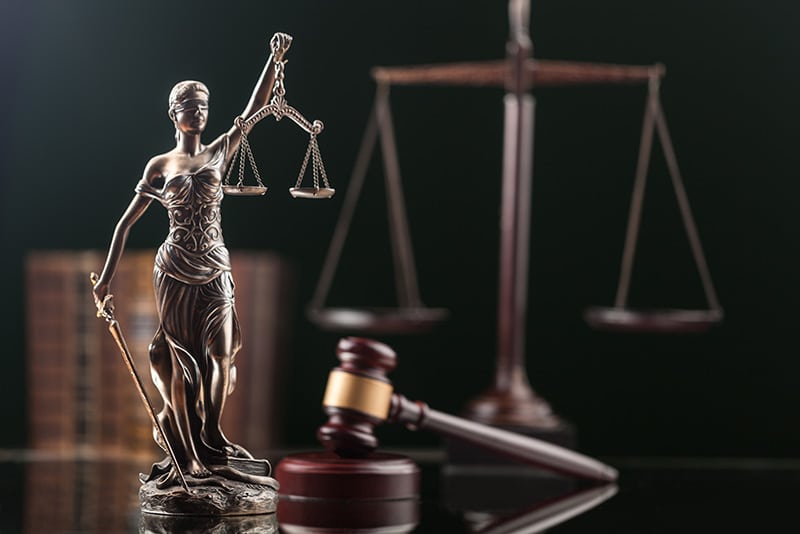See why car accident is rising and what you should do or shouldn’t do if you are in a car accident in this article from Dan ‘The Wreck Man’.
Why Are Car Accidents Serious and Rising in Frequency?
NHTSA Reports Record Increase in Car Accident Deaths in First Quarter of 2022:
This year is on course for recording another record year for car accident road deaths, which have been rising steadily in recent years, despite advances in vehicle safety.
New data released by federal highway safety officials indicates that road deaths increased by 7% during the first quarter of 2022, when compared to last year, marking the largest quarterly increase in deaths from since 2002.
The U.S. National Highway Safety Administration (NHTSA) released its early estimates of traffic fatalities this month, including data for the first quarter of 2022, finding that at least 29 states reported increases over the first quarter of 2021.
Although vehicles continue to get safer and add new features designed to reduce the risk of crash injuries, NHTSA officials have recorded consecutive increases in overall car accident deaths over the last several years, with 33,244 fatalities in 2019, 38,824 in 2020, and 42,915 in 2021.
Following this steady increase in prior years, an alarming spike was seen during the first quarter of this year, with at least 9,560 deaths in motor vehicle traffic crashes in the first quarter of 2022, which is a 7% increase over the 8,935 fatalities projected for the same quarter in 2021. According to the newest estimates, 2022 may be on track for yet another consecutive increase in motor vehicle deaths.
While the causes of these increased car accident deaths were not identified in the report, officials noted that several states saw particularly significant increases; with Delaware seeing a 163.2% increase, a 62.5% increase in the District of Columbia, a 37.6% increase in New York and a 51.2% increase in North Carolina.
“The overall numbers are still moving in the wrong direction,” said NHTSA Administrator, Dr. Steven Cliff. “Now is the time for all states to double down on traffic safety.”
The rising rate of car accidents road deaths has become a major focus of the National Transportation Safety Board (NTSB) in recent years. It released a series of safety recommendations in September 2018, calling for the National Highway Traffic Safety Administration (NHTSA), Centers for Disease Control and Prevention (CDC) and the Federal Highway Administration (FHA) to collaborate on efforts to produce better standards to protect pedestrians.
Pedestrian Fatalities
Pedestrian accident deaths have been a special topic of focus in recent years, as rates of pedestrian deaths caused by motor vehicle collisions have increased sharply. The Governors Highway Safety Association (GHSA) released a pedestrian fatality report last year finding that for year-over-year comparisons, pedestrian deaths from traffic accidents increased by 4.8% in 2020.
The number of pedestrian fatalities skyrocketed by the beginning of 2022, with a total of 7,485 people struck by vehicles while walking in 2021, which is the most in a single year in four decades.
Speeding has also become a major concern for highway safety regulators, causing thousands of deaths and serious injuries to pedestrians, cyclists and motor vehicle occupants annually. Moreover, car accidents have become the leading cause of death for teens between the age of 15 and 18 years in the United States, ahead of all other types of injury, disease or violence.
Last year, the Governors Highway Safety Administration (GHSA) issued a report highlighting the significant role speeding plays in teen driver accidents and deaths; providing a series of recommendations for parents about how to mitigate risky driving behaviors among teens.
According to the GHSA report, 15,510 teenage drivers between the ages 16 to 19 were involved in fatal motor vehicle crashes from 2015 to 2019, with about one-third (5,202) of those fatal incidents caused by speeding. The data indicates teenagers accounted for 43% of all driver and passenger deaths related to speeding, were also found to have the highest percentage of fatal motor vehicle crashes in which a roadway departure (71%) or rollover (41%) occurred.
What to Do:
Steps to Take After Being Hurt in a Car Accident

If you have been harmed in a car accident, there are a few things you should do right away to give yourself the best chance of getting the full amount of compensation you deserve for your damages. The ten steps listed below can aid you when suing the insurance company, safeguard your rights, and assist you.
1. Call 911 and Get Emergency Medical Attention
You should seek medical assistance right away if you think an automobile collision caused your injuries. Now is not the time to be concerned about medical bills and wish the pain would go away. On the other hand, the longer you delay seeking medical care, the more probable it is that the insurance provider would contend that your injuries were not caused by the accident. The insurance industry frequently asserts this argument.
Insurance companies frequently assert that you were not seriously hurt if you did not use an ambulance to get to the hospital for treatment or if you waited a few days for the pain to go away before getting help. Additionally, the insurance companies contend that something that happened after the accident and before you sought medical attention was to blame for your injuries.
Additionally, the insurance providers will argue that you waited to seek medical care until an attorney instructed you to do so. In other words, if you delay seeking medical attention after a car accident, the insurance companies will seize the chance to argue that your injuries are either false or weren’t brought on by the collision. Avoid making this error. Always go to the hospital right away after an accident to get treated for your injuries.
2. Secure the Accident Scene
Remove accident vehicles from the road, if possible, to reduce hazards to other drivers. If possible, quickly take photos of the scene and vehicles involved before moving the vehicles and debris from the road.
3. File a Law Enforcement Report

Contact law enforcement and request that a report be filed. When an accident occurs, it’s crucial to notify the authorities. This is accurate for a number of reasons. Prior to determining who was at fault for the collision, law enforcement will conduct a preliminary investigation, speak with all involved parties and any potential witnesses, examine the accident scene, examine the vehicles, and examine third parties. The strongest piece of evidence to show liability is a police record that identifies the responsible party.
Without a police report, you run the risk of a “he said, she said” argument. Even if the other motorist initially admits blame and offers to resolve the situation amicably, his or her account can change in the future. The other driver may even claim that the collision never happened, which would put you in a position to file a claim with an insurance provider who maintains that its insured driver was not at fault. Stop allowing this to happen to you. After an automobile collision, always call the police to file a report.
4. Obtain Witness Contact Info
Obtain contact details for the witnesses. If there were any witnesses to the accident, you should get their contact information if your injuries do not prevent you from speaking with them. Third-party witnesses frequently leave the site of an accident before law enforcement arrives. As a result, by the time law enforcement arrives on the scene, crucial witnesses may have already fled, leaving you to rely solely on your word against that of the other driver. You can aid law enforcement in identifying the responsible party by getting witness information.
Additionally, police reports frequently do not mention witnesses in sufficient detail to later get in touch with them. A witness’s name alone, without a contact number or other identifying details, may be listed in a police report. A witness may be tough to locate later if they have a common name, such as John Smith. You’ll need the witness’s information if you need them to testify in court. If you are able to, make sure to gather witness data at the scene of the collision.
5. Take More Photos of the Accident and the Vehicles
If you can, utilize your smartphone to take as many photos as you are able of the accident scene and the vehicles involved. Photograph everything!
6. Clearly Describe Your Injuries
After an accident, it’s crucial to accurately and fully report your injuries when seeking initial medical care. Your concerns and injuries will be noted by the healthcare professionals in their medical records. The insurance companies will therefore rely on these medical data when they later assess your injury claims. The insurance provider will claim that an injury you later claim is not legitimate or connected to the accident if it is not documented in your first medical records.
A minor ache that you ignored because you didn’t think it was important could worsen over time and develop into a major injury. It could be challenging to demonstrate that it was caused by the accident if you failed to describe it at your original medical session. This is not the moment to demonstrate your strength or high level of pain tolerance. Any area of your body that you believe had even a minor impact from the accident should be disclosed to your healthcare professional. Never presume that things will improve. Inform your medical professional and make a record to protect your future right to injury compensation.

7. Get Complete Diagnostic Examinations
When receiving care for your injuries following an accident, make sure to request and receive all essential diagnostic tests and examinations. Once more, it is not the time to be concerned about medical costs and financial savings. Your health and ensuring that any injuries you may have received are found and documented should be your primary priorities. Be sure to reiterate this to the healthcare professionals you are seeing.
Do not let doctors who are hesitant talk you out of getting the necessary testing. You need to stand up for your own interests and your health. As a result, be sure to get the x-rays, MRIs, scans, and other testing you require so that your medical professionals can identify your injuries and rule out any additional. It is simpler to demonstrate that injuries were brought on by an accident the sooner afterward they are diagnosed. Do not put yourself in a position where the insurance companies have any room to claim that the accident had no bearing on your injuries. When you start treatment, get all the required medical testing.
8. Never Provide Any Information to an Insurance Firm, Not Even Your Own.
After an accident, never give a statement to any insurance company, not even your own! Insurance company representatives will undoubtedly make an effort to get in touch with you and claim that they are there to assist you and look out for your best interests. You could think that your insurance provider is on your side and that the only people you need to exercise caution around are the insurance adjusters for the opposing party. This is not the case, though.
You will need to seek your own insurance carrier for coverage under your uninsured or underinsured motorist policy if the at-fault driver is either uninsured or has insufficient insurance to pay for your injuries. After doing so, you will be in direct conflict with your insurance provider. Your insurance provider will want to give you the least amount they can get away with while you will be seeking the highest settlement feasible. In order to optimize their earnings and stock prices, insurance companies have a responsibility to their shareholders. By obtaining insurance premiums and disbursing as little money as possible when claims are made, they accomplish this.
Immediately following a car accident, insurance companies make an effort to get in touch with everybody who was hurt to get a statement about what happened. They do this in part because they anticipate that the victim of the accident won’t have had time to speak with an attorney. When you file a claim for compensation for your injuries, the insurance company will attempt to get a statement from you that they can use against you later.
As a result, you shouldn’t tell the insurance company how the accident happened or how severe your injuries were. You should let your insurance company know that the accident happened but that you don’t want to make any statements until you’ve spoken with a lawyer.
9. Don’t Post Anything About the Accident on Social Media
Insurance companies will search your social media accounts to see what you posted about the accident. They will use your posts against you. They will also subpoena your cell phone and email records to see what you told your family and friends about the accident. So be careful what you say to anyone.
10. Hire a Qualified Car Accident Attorney
You should retain a skilled personal injury attorney with experience in car accidents to represent you if you were hurt in a car accident. Your lawyer will battle to ensure that you receive the highest amount of compensation for your injuries because, unlike the insurance company, they are working in your best interests. You can receive advice from an expert lawyer at every stage of the procedure.
Your lawyer will be able to help you with the following things: resolving your property damage claim, having your car fixed, obtaining funds or insurance for a rental car, ensuring that you receive medical care, maximizing your financial recovery for your injuries (through a lawsuit or negotiations with the insurance company), and negotiating and settling medical liens.
According to studies and surveys, those who are represented by attorneys are paid 2-3 times as much as people who are not. Even while your lawyer will receive a portion of the compensation you receive, it will still be far more than if you went up against the insurance company on your own. In other words, an accomplished lawyer will cover his own costs. As quickly as possible after an automobile accident, make sure to retain a qualified attorney.
11. Keep a Journal Where You Can Record Your Accidents, Encounters, Medical Care, and Costs.
After an accident, it’s a good idea to keep a journal to assist you remember significant occasions and encounters. You should include information on the accident’s circumstances, your injury’s pain and symptoms, the doctors who treated you, any time you missed from work, and any out-of-pocket costs for co-pays and prescriptions in your notebook. If you need to file a lawsuit, it can take two to three years from the accident for you to get your day in court. Therefore, you can use your diary to aid with your memory of specifics that may have faded or been forgotten over time.
Immediately after an accident, the specifics may be apparent to you, but two to three years later, it’s likely that you won’t remember them the same way. As soon as possible after the accident, you should put all the pertinent information in writing. This could include things like what you were doing, where you were going, the weather, the traffic, how the collision happened, discussions you had there, etc. on the day of the accident. You should also keep a record of how your injuries affected you. This can include the discomfort you felt, your incapacity to perform simple tasks of daily living, the people you had to depend on, and how you felt as a result.
Additionally, you should keep a record of your medical providers, appointments, lost work time, and expenses. The insurance company will demand detailed medical documents from your lawyer to back up your injury claim. This will make it easier for your lawyer to later get this information. Any lost wages and out-of-pocket expenses for medical care are recoverable. So that you can also claim these objects, you need make sure they are properly documented.
Documenting these events as they happen makes organizing them two to three years later considerably simpler. After your accident, be careful to keep a journal to help you with your injury claim.
12. Attend Treatment Sessions and Any Scheduled Medical Appointments. After an Injury Occurs, It’s Crucial To Complete All Medical Care and Physical Rehabilitation As Directed.
Physical therapy and the ensuing doctor’s appointments might take a lot of time and effort. Nevertheless, they are required to aid in your injury healing and return to full health.
The insurance company will contend that you were not harmed if you skip the recommended medical appointments and skip all of the physical treatment that has been prescribed. The insurance firms will also contend that you did not attempt to lessen your losses. In other words, the insurance firms will assert that by skipping out on the recommended medical care, you contributed to the severity of your injuries and any long-term negative effects.
As a result, the insurance companies will try to lower the compensation to which you are entitled. Give the insurance company no opportunity to dispute your injury claim. Always follow through on all prescribed medical care, as well as any scheduled appointments.
13. Be Patient As the Process Continues.
When pursuing a recovery from the insurance company, it’s critical to exercise patience. A recovery is typically not possible until you have received all required medical care, fully recovered from your injuries, or reached the point where your injuries are as good as they can be. It could take months or even years to complete this process.
Moreover, if a lawsuit is necessary, this could take several additional years depending on a number of variables, such as the complexity of the case, the court’s schedule, the availability of witnesses, etc. When looking for a recovery for your injuries, do yourself a favor and be ready to wait a while.
What Not to Do!
Mistakes You Should Avoid If You’re Injured in a Car Accident

1. Neglect To Seek Immediate Medical Care.
Seeking care – and treatment, if necessary – as soon as possible is vital to your well-being. As it happens, it’s also crucial to your case when you seek compensation for an injury. Our experience shows that if you do not seek medical treatment shortly after your injury, insurance companies are likely to use that against you when you make a claim. They will argue that if you were really hurt, you would have sought treatment sooner. We know, however, that some injuries can take time to appear, and some minor injuries can worsen over time.
2. Talk to the Insurance Company Without Preparation.
The at-fault person’s insurance company may try to record your statements. They also may take what you say to try to reduce or deny your claim. If they ask for a recorded statement and you have not spoken to an attorney, decline to give one. According to some of the former insurance adjusters at our firm, they are trained to try to get you to talk about the accident soon after it occurred. You may still be shaken up, your recall may be a bit unclear, or you are on pain or other medication that may confuse your thoughts.
Or, in some cases, this contact can happen before all your injuries may have manifested. Some of the seemingly benign questions they ask could lead you to answer in such a way that can be used against you when negotiating your financial compensation. “How are you doing today?” may simply be a pleasant way to begin a conversation. Or it could be a tactic to elicit a health status from you. The wrong answer could cause you major setbacks.
3. Neglect To Seek Proper Follow-Up Care.

Insurance companies pay a great deal of attention to the type of follow-up medical treatment you receive after a car accident. If your follow-up care is inconsistent, ineffective, or with the wrong kind of doctors, or if the doctors can’t credibly tie your injuries to the incident, you may be headed for real trouble for both your health and for your claim.
4. Wait for the Insurance Company To Do the Right Thing.
We see it all the time. People want to “wait-and-see” what the insurance company does first. These are usually clients who trust insurance to do right by them. Insurance companies make money by limiting their payouts. Your best interests do not align with theirs!
Simply by waiting, many people end up damaging their cases beyond repair – by not preserving evidence, saying something to an adjuster that seems innocent but winds up being used against them, or inadvertently committing any of the other mistakes outlined here. Meanwhile, the insurance company will almost certainly be working to limit their losses and pay less.
5. Do Not Take Quick Cash or Lowball Offers.
Just remember one thing and you’re more likely to avoid mistakes: The insurance company is in business, and profits by paying less money out in claims. That’s it. The less they pay, the more they keep. This can and does work against injured people.
Avoid Quick cash offers: Some insurance companies might offer you fast cash up front before all your medical treatment is completed. Don’t cash that check! If you do, your case is likely over. What if you have medical issues that manifest later, which can happen with any injury? Head injuries and internal injuries can easily become worse over time, especially if misdiagnosed.
We have seen fractures and broken bones diagnosed at first as simple sprains. If you cashed the check, your case is probably closed and the insurance company may not be legally obligated to pay for those newly discovered, misdiagnosed, or worsening injuries.
Lowball offers: We see it often – some insurance companies lowball victims. Sometimes, this is the initial offer. Other times, it’s after the insurance company withholds money until the claimant is so strapped for cash, they will take any amount. By the time many people realize that the insurance company is lowballing them and they contact us for help, it is sometimes too late to try to right the ship.
If it seems like a lot of these mistakes are avoidable with the help of an attorney, it’s because they are! We see these happen all the time. An experienced car accident injury lawyer is going to fight for your best interests – something an insurance company is very unlikely to do.
Contact the Experienced Car Accident Attorney – Dan ‘The Wreck Man’
The Law Office of Dan Moore has years of experience dealing with car accident injuries and insurance companies. We even have former insurance adjusters on our team, so we know what to expect and how to protect your rights. Call us at 888-2-WRECKMAN or submit your case. We can discuss the specifics of your case and get you on the right track. Don’t wait for the insurance company – tell them you have a lawyer, and they can contact Dan ‘The Wreck Man’ at 888-2-WRECKMAN on your behalf.

